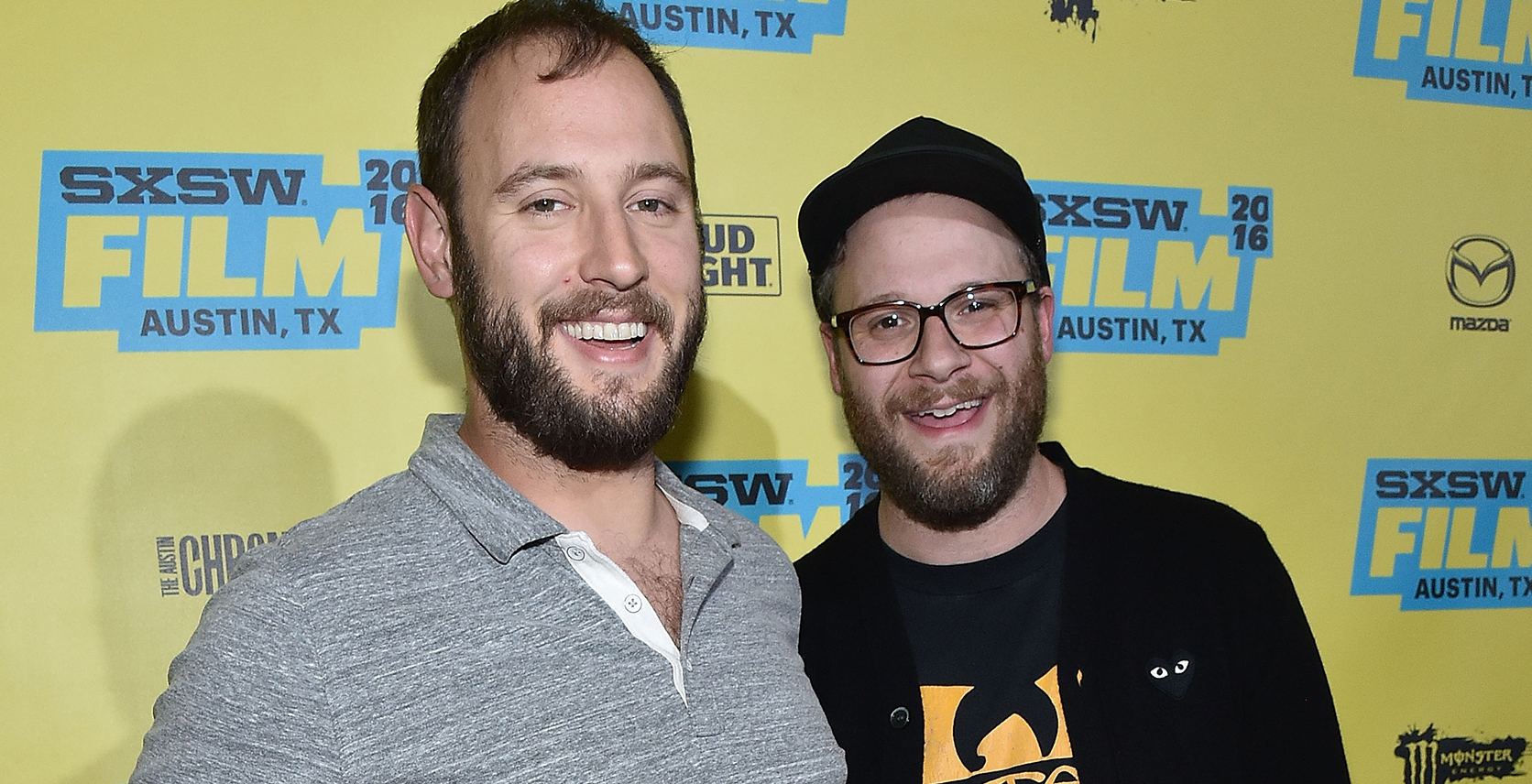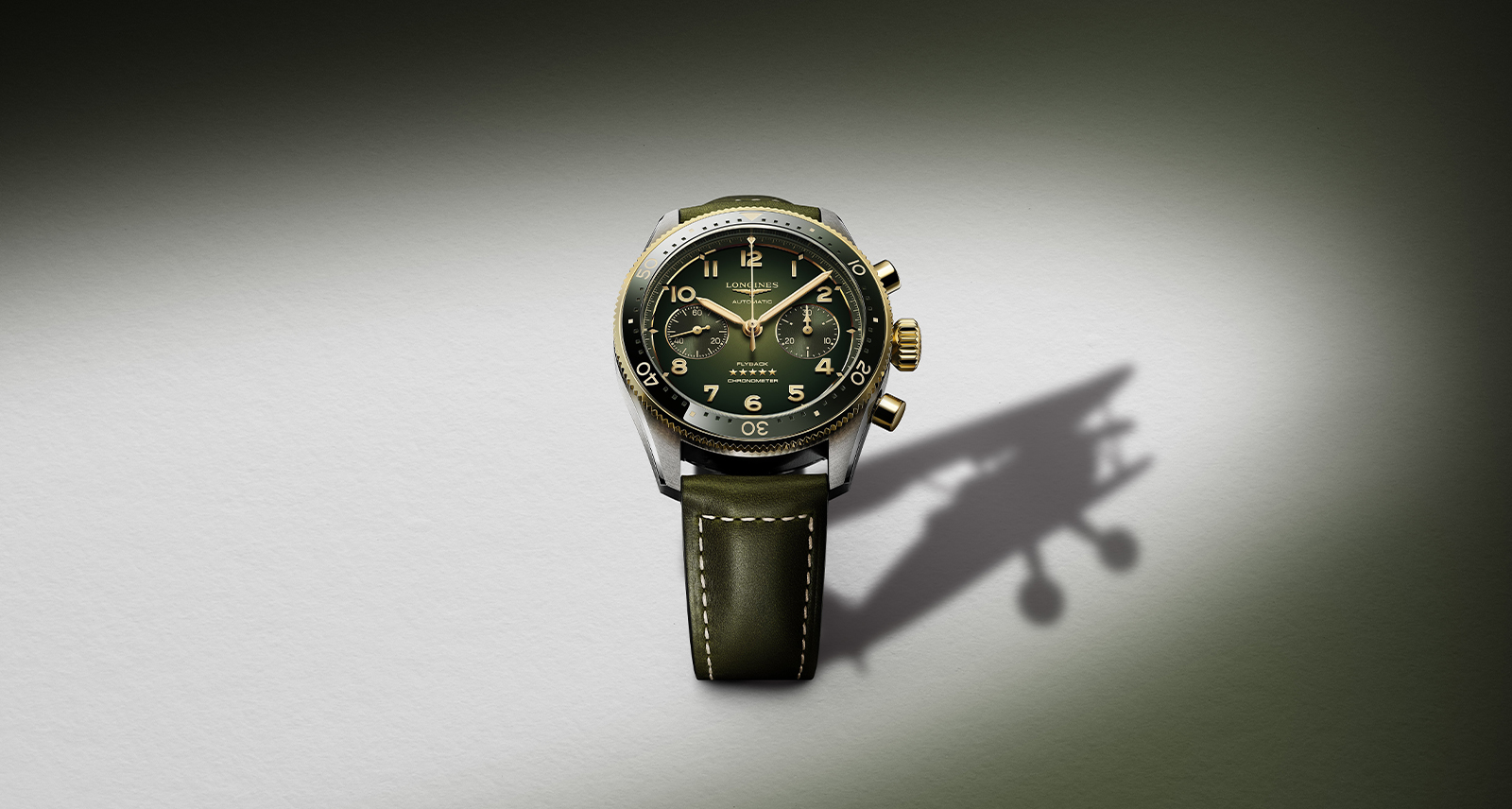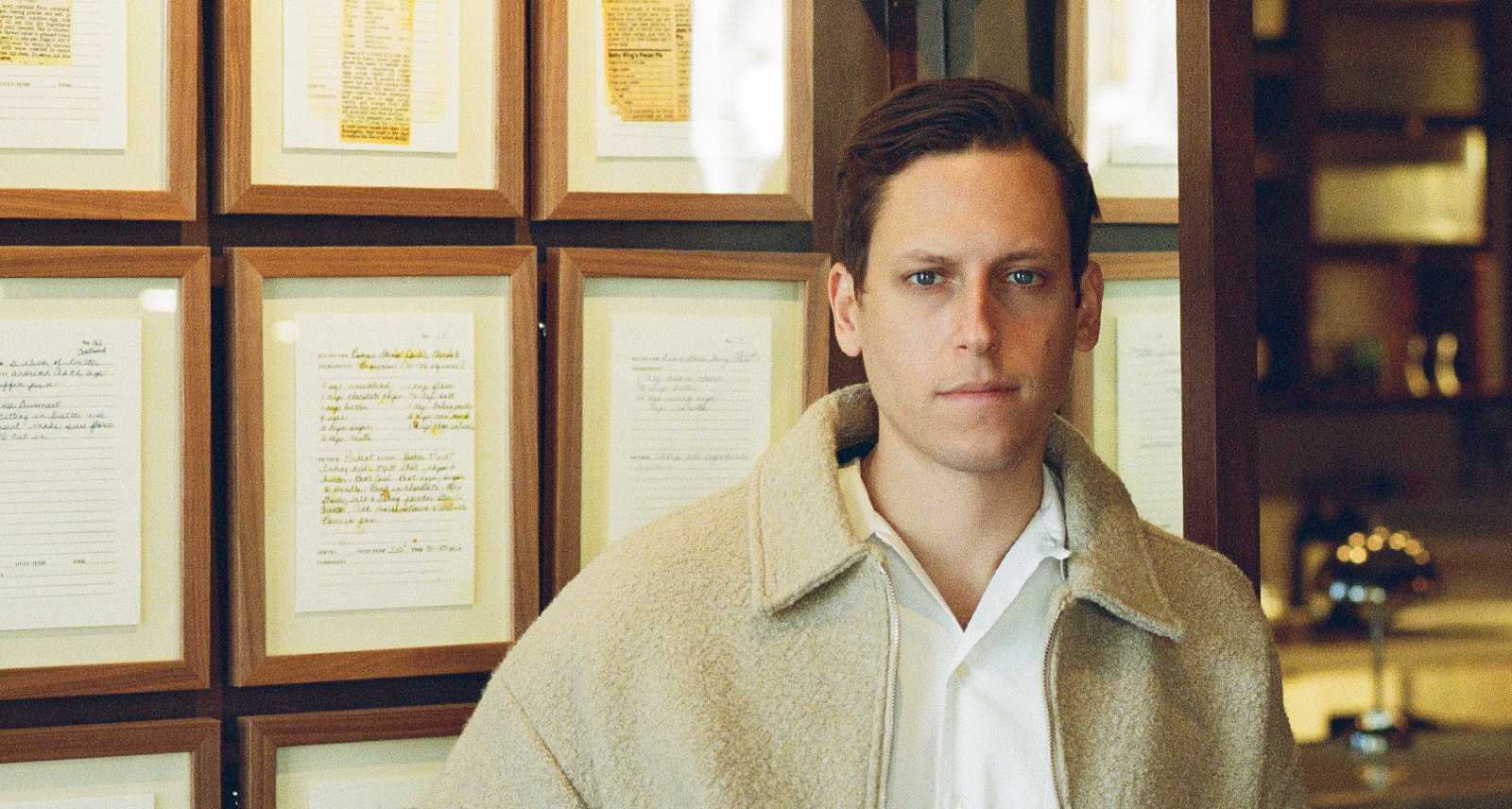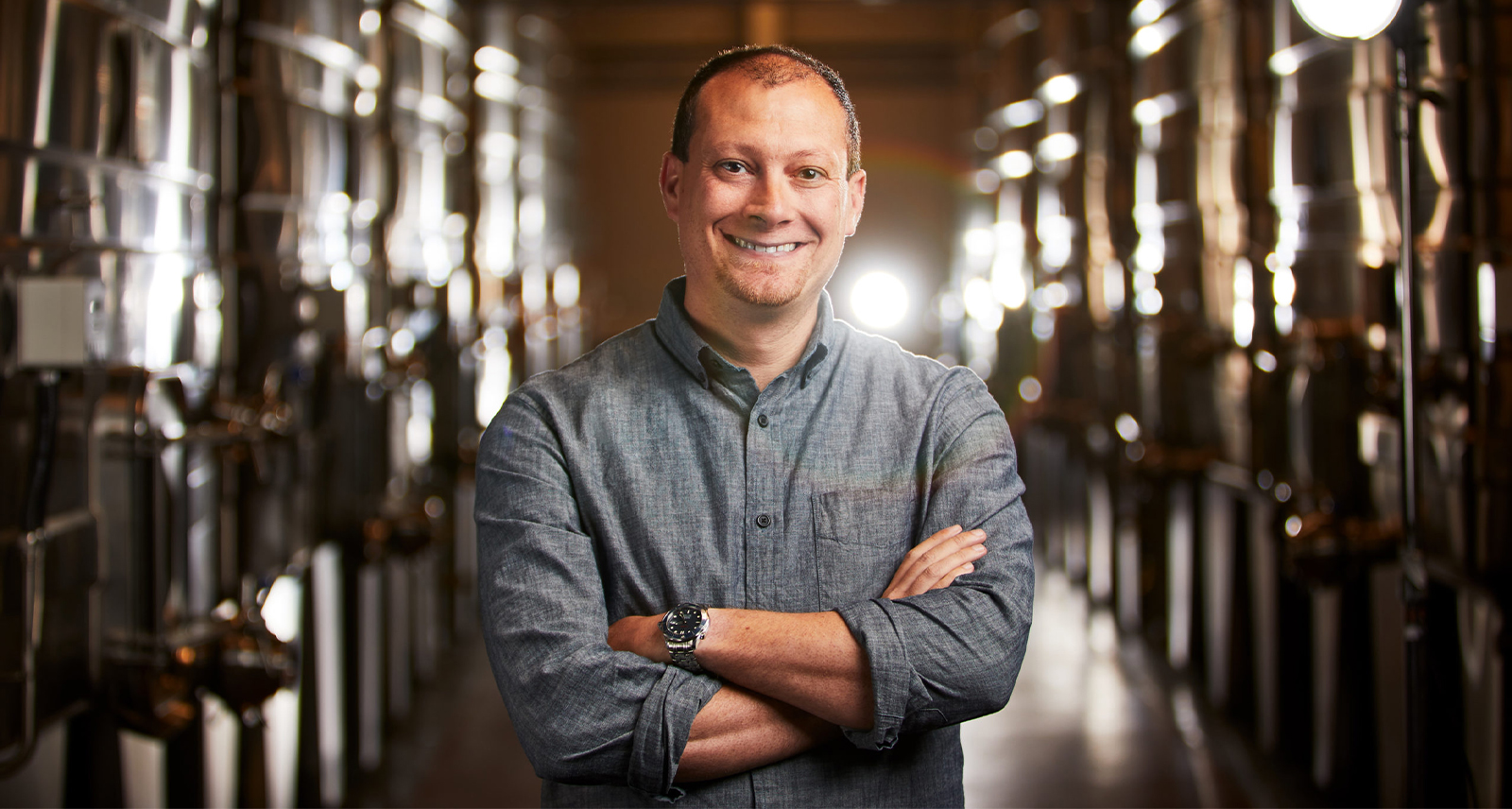Evan Goldberg on the Delicate Art of Telling Dick Jokes in the #MeToo Era
Netflix’s new action-comedy Game Over, Man! — starring Workaholics trio Adam Devine, Anders Holm, and Blake Anderson, and co-produced by Seth Rogen and Evan Goldberg — contains just about all the phallic humour (and straight up phalluses) you’d expect. Which, yeah, isn’t exactly going over too well with everybody, seeing as we’re amid a #MeToo era that began in response to guys doing creepy things with their penises. Late last year, Rogen and Goldberg also received flak for the dick jokes employed in their Hulu comedy Future Man, with The Verge arguing that “the world could use a break from stories about males thinking about — and with — their junk.”
It’s a fair gripe — one I couldn’t not bring up when I recently interviewed Goldberg. And while he and Rogen have built their brand on raunchy dude comedy since 2007’s hormonally twitchy Superbad, he revealed the duo have been going to great lengths (not a dick pun, I swear!) to ensure their jokes don’t cross the line. This includes meticulously testing their projects with various audiences, and even employing more women than men at their production company, Point Grey Pictures.
And yet, some critics still feel the duo’s recent output goes too far. Of course, you could argue that pushing social boundaries has long been the heartbeat of great comedy. But! You could also argue there’s a line to be drawn between humour that works and humour that hurts. And while discomfort-comedy is a whole genre in itself, sometimes an uneasy audience just makes a joke go flaccid.
Goldberg opened up about the thorny process of writing crude comedy in this brave new politically correct world.
Game Over, Man! has been described as Die Hard with a comedic twist. You and Seth are sort of the masters of the hybrid comedy. Why do you keep gravitating toward mashing up comedy with other genres, like action or horror?
We just like going from genre to genre because it’s refreshing and new and fun! It gives us a different arena to play in and in some ways gives us more and different tools, and in some ways takes away other tools. Doing something that’s straight up action-comedy is very different than doing something that’s a horror-comedy. And I think that’s probably one of the reasons the Workaholics guys wanted to do this with us, because it falls well in our wheelhouse. But I think of it less as their take on Die Hard and more as a skyscraper thriller. Die Hard in a taller building is another way to put it. Or Under Siege… but in a building. Let’s go with that.
Working with Netflix, did you guys find you got less notes than you did from other studios?
Oh yeah, Netflix definitely does not have as many notes. I don’t know what it is that their giant computer at the centre of the earth told them, but I think Netflix’s algorithm decided that the Workaholics are better than us for Netflix. Like, they are jacked about the Workaholics. They implied that within their system, the Workaholics are extremely loved and will do very well. And they told us that from the get-go. Their computer overlord said, “This will go well. Let them do what they want.” And they really did. It was like, “Our algorithm says the more we let you do your thing, the better you’ll do.” I just picture, like, a Marvel comics planet thing with a giant machine; a hundred ppl say shit and then a little piece of ticker tape comes out. And then they make a movie.
You guys founded Point Grey Pictures with this idea of making movies on a smaller budget in order to have less pressure from the studios. Was it the disenchantment from working on bigger movies like The Green Hornet that made you say, “Fuck it, let’s just do our own thing”?
Uh, no. I mean, that one was a wild ride, for sure. But it was just mostly the business of structuring the movies 50/50 and This Is the End; just going through that process as our own producing entity for the first time. It showed us that if we had too big a budget, and if we were the biggest potential earner a studio had, then we’d be the ones they’d put the biggest amounts of thought into, which meant they bothered us the most. So we decided we would keep it tight — still big movies, still giant features, but keep the budget tighter to do what we want. That would serve us in the long run because we would have [does a Bond villain voice] a pure clean, creative voice. And I’m very glad we did it that way.
Mo’ money, mo’ problems.
Less money, mo’… jokes? [Laughs.]
Well, speaking of your creative voice, I’ve got to bring this up. After Future Man came out, a bunch of thinkpieces were published in response to it, arguing that since we’re in this #MeToo era, now’s not the time for that brand of dick humour, made for dudes by dudes. What’s your response to that?
I thought we had a real dope, strong female character on that show, who outdid the guys in being hilarious and crude. I’m pretty proud of that, personally. It’s a weird thing to not focus at all on the kickass girl.
Do you think people are too sensitive about comedy nowadays?
Inherently, the basic concept of comedy is that it is insulting and dark in a lot of ways. A lot of comedy is very specifically an intense satire. So it’s not shocking to me that in this environment, amid this movement that is important and great and necessary, that people are oversensitive to comedy. Because comedy is inherently straddling the line. When you’re in a comedy writing room, you’re saying, “Did this go too far? Should we reel this back?” You’re always dancing with this stuff. Comedians are in a different situation. You have to have somewhat different conversations about these things. And that’s probably a good thing. But it’s definitely a more complicated thing.
Yeah, it sounds like it! Is it weird revisiting some of your comedies under this new lens of social consciousness? Do certain things seem inappropriate looking back?
Oh yeah. That’s just inevitable. We know that’s happening when we’re doing it. Like, Sausage Party? When people look back at that in like 40 years? They’re going to be like, “What the hell is this?” Comedy applies to the time it’s in. Like, if you watched Team America 25 years from now, you’re going to be really confused, because, like, it’s a commentary of the time. If you go back and watch early South Park, they’re saying things that might not seem as humorous now, but it’s because society was really different then, and it was a satire of that time and place. So, yet again, the tricks of comedy.
And yet, pushing boundaries is so important in comedy. How do you gauge whether a joke has gone too far?
I think there’s only one way to go about it, which is have everyone in the room, and involved in the project, discuss it, rate it, and come to a good decision. And also, something that is important to make sure that that room of people represents the world you’re selling it to. Because if you just have eight white dudes in a room, that’s not going to work. At our company, we just hired a bunch of new people and now there are more girls than guys, and some of the people aren’t white. And maybe this is just me personally, but I think you just have to make sure that those working on the answer to the question of “Does this go too far?” are people who have very different opinions. Like, we have some people who love multi-cams and I don’t really watch a lot of multi-cam stuff. And I’m glad there are two different opinions. And there are some people who were raised in America, and some people who weren’t; some people who are white, and some people who are not. And I think having all those different voices is one of the very important things to having these debates. I imagine when it’s just eight old white dudes or eight young white dudes in a room discussing if a joke’s gone too far, they may not be the best judges of that.
That’s why when we’re working on our stuff we also share it with a lot of people. When we were working on Game Over, Man! we shared it with tons of people and asked, “Does anything about this seem effed up to you? Is this still cool?” And I like to think we’ve done a relatively good job.
Interesting! I think a lot of people have the impression that it’s just you and Seth in a room trying to make each other laugh.
Nooo, not at all. We’ll test things in theatres. We’ve straight up tested shit in theatres that we were like, “Is this joke too far?” And then the audience disliked it and you could hear them go, “Ughhh.” And then we just ripped it out of the movies. That’s something we do that people are generally shocked by; they think we just do our thing and blah blah blah, but we’re hypersensitive to the audience reaction. We’ll actually videotape it and record the audio at our movie previews so that we can determine if the audience enjoys it. And we’ll look at their faces in the recording and we’ll listen. And when editing it, we’ll have that up, playing constantly. We’ll do entire run-throughs where we’ll be like, “Okay, so we added all these new jokes, now lets go back and watch the audience recording of those jokes to make sure we didn’t just fall in love with something that the audience didn’t love.” And we constantly find that. There are actually jokes in our social and professional circles we all have that got cut out because the audience just never found them as funny as we did. And usually, they’re not the jokes that go further. They’re ones that are just stupid. Like, dumb, gibberish word jokes between buddies.
You and Seth wrote Superbad when you were 13-year-old kids. Back then, were you guys just fucking around or were you actually serious about making a legitimate movie that would be played in theatres?
We just watched a really bad movie one night — neither of us even remember what it was — and we were like, “We can do better, maybe!” And we tried and it was fun doing it, so we kept doing it. And Seth was actively trying to be a standup, and I was just like, “I’m going to be a writer one day.” I didn’t mean in movies, but in my head, I just wanted to be a writer. And just because it was fun, we just kept going until we were out of high school. And, we just kept going! There was never really a big conversation like, “Oh, is this going to work?” We just kept doing it because we liked it.
When you look at your projects now, there are obviously a lot of references to ’90s action films, and you’re doing adaptations of comics books and working on this documentary about ’90s video game consoles. Does it feel like you’re actualizing the dreams of your 13-year-old selves?
A lot more from my ’90s childhood is coming into play than I would have imagined. But the one that’s really just absurd to me is the Console Wars stuff; the ’90s video game stuff. It’s just weird that that came back around as something that’s worthy of a book and a movie and a documentary. It’s like, the video games I played as a kid, those were such a kid thing. And now, it’s like, “Oh, actually, we all end up in a video game in the future. Forever!”
When you guys wrote Superbad, you were kids writing about desperately wanting to get laid. It came from a real place. Now that you guys are adults, does it feel weird still writing jokes about dicks and weed?
No! The answer is no. It’s harder, but we’re better at it. We keep our game sharp.










